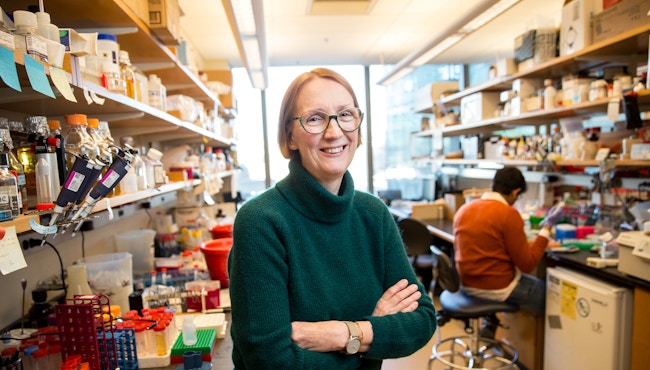
Jeantine’s research interests are concerned with philosophical research ethics in the field of genomic sciences and biological engineering where disruptive technological innovations call for epistemological and normative exploration. She conducts her philosophical and ethical work as a full-time ethicist on the workfloor of the lab.
At the Wyss Institute, she leads the implementation of the model of “Collaborative Ethics” across the field of Biologically Inspired Engineering. Focus areas are computer-designed programmable life forms like Xenobots and biobots, synthetic biology including genome recoding and organoid research, and organ-on-chip translational research that aims to bridge the gap between lab-based human model systems studies and human clinical trials.
Jeantine developed the innovative model of Open Consent for the Personal Genome Project, as a collaborator of George Church in the Harvard Medical School (HMS) Department of Genetics. Since 2024, she has been a Senior Research Scientist in the Department of Genetics.
She teaches Responsible Conduct of Science at the Division of Medical Sciences at HMS. She is affiliated with the Broad Institute of MIT and Harvard, and the Edmond J. Safra Center for Ethics at Harvard University.
Jeantine is visiting scholar at Erasmus University, Rotterdam, Netherlands, and involved with a project on iPSC-based therapies for hereditary anemias.
Jeantine received her B.A. in Philosophy and Tibetan Language and Culture from the University of Hamburg, her M.A. in Philosophy and Health Law from the University of Amsterdam, and her Ph.D. from VU University Amsterdam. She was awarded a Marie Curie International Outgoing Fellowship (2013-2015) for the study of conceptual and normative questions in systems biology.

